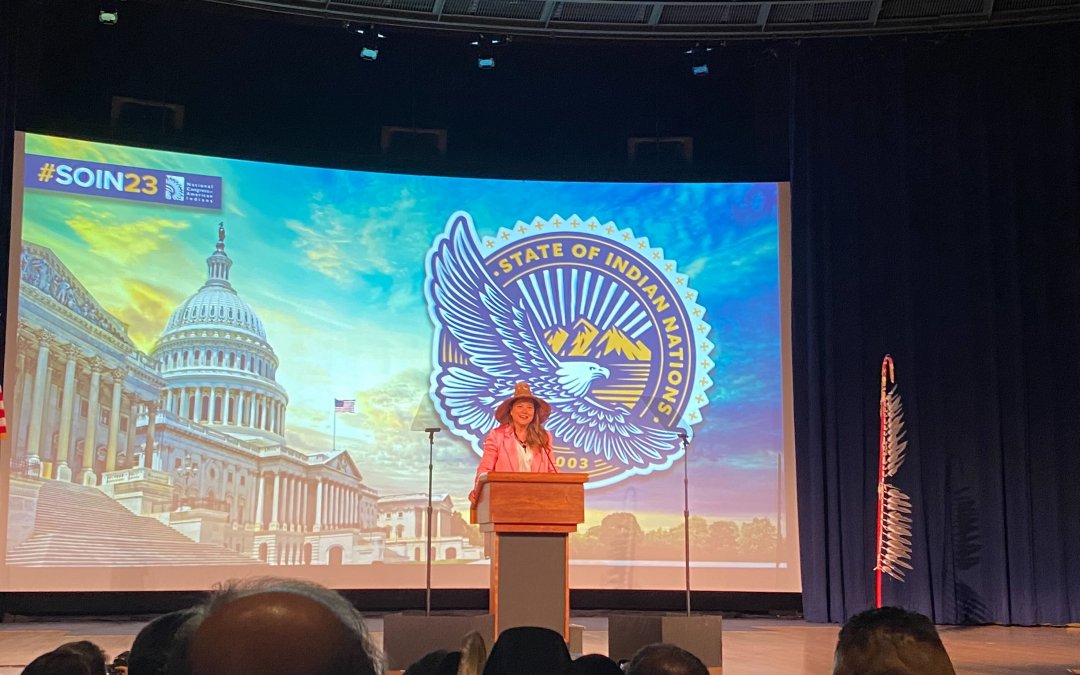WASHINGTON — National Congress of American Indians President Fawn Sharp called on people of native nations to “show up” to fight for their sovereignty in U.S. Supreme Court cases, legislative bills and federal representation at Tuesday’s annual State of Indian Nations Address.
Each year NCAI hosts the address to kickstart NCAI’s annual winter meeting where tribal delegates gather in Washington to discuss the relationship between the federal government and tribal nations. The speech includes a congressional response, made this year virtually by Sen. Elizabeth Warren (D-Mass.).
“We don’t just have a seat at the table, we have influence and we have representation all across the federal government, all across the United States and around the world,” Sharp said in front of 300 people at the National Museum of the American Indian.
Sharp discussed several accomplishments tribal nations have achieved within the last year including securing advanced appropriations for the Indian Health Service and ensuring the Violence Against Women Act was reauthorized and expanded.
She also praised the achievement of parity with state and local governments on critical pieces of funding.
“I’m talking about more than $1 million awarded in grants and loans to expand high speed internet, $580 million to provide long awaited water resources and nearly $470 billion for tribal nations on the frontlines of climate change,” Sharp said.
Sharp called on Congress to keep tribes in mind when negotiating the 2023 Farm Bill, including repatriation of Native lands.
Sharp stressed the danger of the Supreme Court in threatening the sovereignty of Native American tribes. She cited the July decision in Oklahama v. Castro-Huerta, which allows states to prosecute certain cases on tribal lands, including crimes committed by non-Native Americans against members of tribes.
“That means the federal government, the state government has jurisdiction to prosecute crimes on our reservation, against our people, and we do not.” Sharp said. “How just is that?”
She also urged the court to vote against a challenge to the Indian Child Welfare Act, which gives tribal nations a say in child welfare cases involving children raised on reservations. The court heard oral arguments in November but has yet to release a decision.
In her response, Warren thanked people of tribal nations for their advocacy, organizing and teaching and work which she said were the cause of progress made in Congress.
She also discussed some of her work in Congress, including her sponsored bill Honoring Promises to Native Nations Act, which she said would address and make funding mandatory in five key areas where the United States broke promises with native nations — criminal justice and public safety, health care, education, housing and economic development.
“I think it’s crucial for Congress to have legislation that says unequivocally the United States has broken its promises and the United States must start making good on them,” Warren said.
Sharp’s final message was about an issue she says indigenous people uniquely understand: climate change. She urged the group of tribal leaders to be a “unified voice” on the issue.
“When politicians forget that we have political power, we remind them. When companies forget that we have economic and social power, we remind them,” Sharp said. “And we are using that power to make incredible progress for the earth and all things living.”

